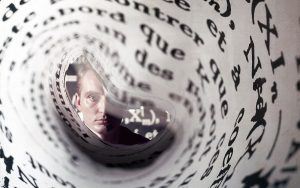Mordechai Levy-Eichel in Aeon:
 The modern separation among scholars between intellectual history and the history of mathematics is untenable as mathematics might be the ultimate intellectual endeavour. In the words of the 19th-century German mathematician Carl Friedrich Gauss: ‘mathematics is the queen of the sciences’; like literacy, widespread numeracy is one of the defining features of modernity. In fact, one of the great shifts of modernity has been how mathematicians changed their view of mathematics, transforming the focus of their work from the study of the natural world to the study of ideas and concepts. Perhaps more than any other subject, mathematics is about the study of ideas. Yet, when people invoke the history of ideas, you are unlikely to hear about Dedekind’s cut (that is, the technique by which the real numbers are rigorously defined from the rational numbers), or L E J Brouwer’s rejection of Aristotle’s ‘law of excluded middle’, which states that any proposition is either true or that its negation is (put technically: for all propositions p, either p or not p). Nor are you likely to hear about the contested history of these ideas. Generally, when they talk about ideas, intellectual historians today mean political thought, cultural analysis, and maybe a sprinkling of economic and religious concepts, too.
The modern separation among scholars between intellectual history and the history of mathematics is untenable as mathematics might be the ultimate intellectual endeavour. In the words of the 19th-century German mathematician Carl Friedrich Gauss: ‘mathematics is the queen of the sciences’; like literacy, widespread numeracy is one of the defining features of modernity. In fact, one of the great shifts of modernity has been how mathematicians changed their view of mathematics, transforming the focus of their work from the study of the natural world to the study of ideas and concepts. Perhaps more than any other subject, mathematics is about the study of ideas. Yet, when people invoke the history of ideas, you are unlikely to hear about Dedekind’s cut (that is, the technique by which the real numbers are rigorously defined from the rational numbers), or L E J Brouwer’s rejection of Aristotle’s ‘law of excluded middle’, which states that any proposition is either true or that its negation is (put technically: for all propositions p, either p or not p). Nor are you likely to hear about the contested history of these ideas. Generally, when they talk about ideas, intellectual historians today mean political thought, cultural analysis, and maybe a sprinkling of economic and religious concepts, too.
More here.
